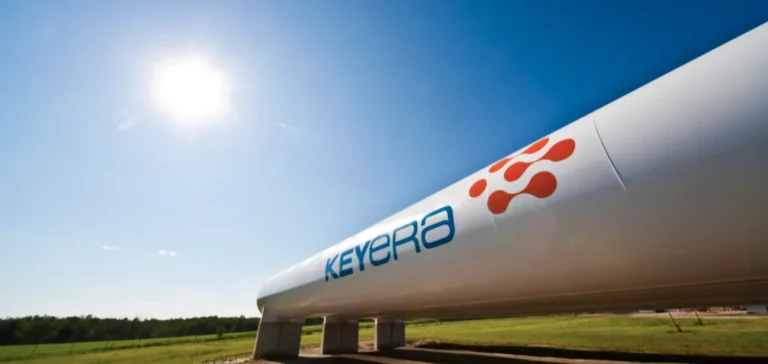Canadian group Keyera has approved the construction of the Zone 4 extension of its Key Access Pipeline System (KAPS), a strategic network transporting natural gas liquids and condensates from northwestern Alberta to Fort Saskatchewan. This 85-kilometer extension, linking Pipestone to Gordondale, aims to increase overall transport capacity and improve connectivity with production areas in the Montney formation.
Financing secured through contractual commitments
The project is backed by long-term transportation commitments covering more than 75,000 barrels per day, with an average duration of 11 years. Most of these contracts are signed under the “take-or-pay” model, ensuring fixed revenue for Keyera. The contracted volumes also include downstream services, such as fractionation, storage, and marketing, ensuring operational integration for customers.
The extension will connect to the Northeast BC Connector, operated by NorthRiver Midstream, strengthening access for producers in British Columbia and Alberta to key markets. Commissioning is scheduled for mid-2027, in line with the announced execution timetable.
Deployment of complementary assets
In parallel, Keyera is investing in expanding its fractionation capacity at the Keyera Fort Saskatchewan Complex (KFS). The KFS Frac II unit, with an estimated capacity of 8,000 barrels per day, is expected to enter service by the end of 2026. A third train, KFS Frac III, is planned for 2028. These additions will enable processing of the additional volumes generated by KAPS.
Keyera’s business model, based on fee-for-service revenues, limits exposure to commodity price fluctuations. These investments are designed to stabilize cash flows and support growth in the context of continued expansion in regional production.






















